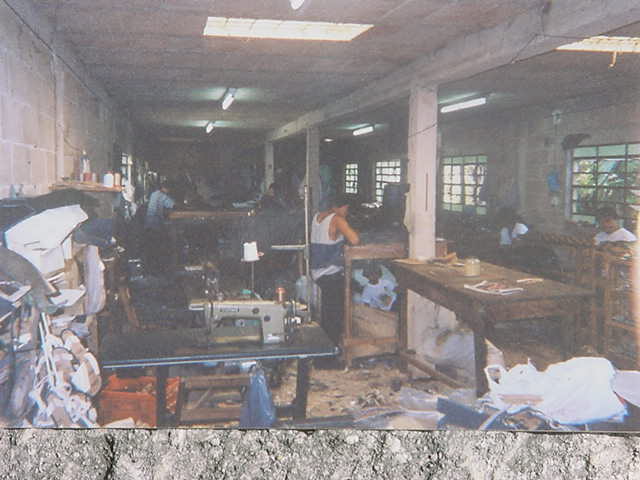

A few weeks ago on an excursion to Ticul we visited a shoe factory called the Market Princessa. Upon entering the store, one walks into the door and is greeted by a bunch of smiling faces. Immediately, a group of students and I were led to the assembly center of the shoe store. The room was quite large, filled with tables, boxes, leather, and shoes in various stages of completion. Once my group and I were let loose, the barrage of questions began. With only basic Spanish skills it was a bit difficult to pry some of the shoemakers from their work to answer some of our questions. Upon speaking to a shoemaker, I found out that there was an emergency stash of cigarettes that lined the wall. The shoemakers said that generally they make around 20 to 30 pairs of shoes a day.
When asked about how he learned his craft, he said that a The cost is usually ten dollars a pair and the shoemaker get an undetermined amount for each shoe made and sold. The shoemakers´ workdays range from seven to ten hours a day. Many of the shoemakers have been there for years; one man in particular by the name of Ueletaño has been working there for ten years.
A patron came over to his town recruiting workers and training them in the art. They begin their training by observing the various processes of shoemaking. They begin with the easiest tasks of assembly and shoemaking and then move on to more difficult tasks.
Over the years though many of the men have gotten tired of the job, but feel that they have nowhere else to go. Many of the men have children and need to get in as much money as possible because the work is seasonal. It is not uncommon that they go for a period of months without work when the demand is low.
The shoemakers also say that the work is repetitive and dull. They are allowed to be creative, but the shoe must sell. Also, for Ueletaño, the pay is not enough to support a family with three young children. On the other hand, Ueletaño said that if he wants a pay raise he could try to be a leather cutter but it is very hard work. So in the end, Ueletaño is still assembling shoes and trying to give his children a good life.
|
back |
next |